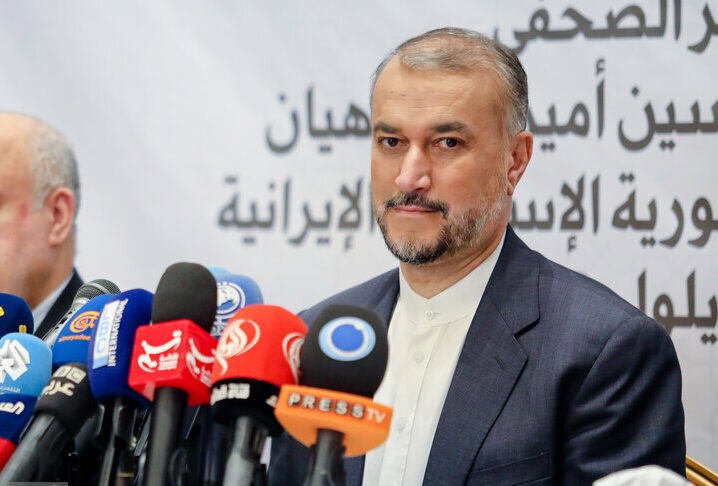Drawing from remarks made by the Iranian Foreign Minister about an initiative by the Sultan of Oman that involved an exchange of messages, there seems to be an air of expectancy among mediators and capitals, as they contemplate the blueprint for novel measures toward achieving agreement in areas related to sanctions relief and nuclear issues.
Iran’s Minister of Foreign Affairs, Hossein Amirabdollahian, used a fraction of his time at a Beirut press briefing to provide responses to press questions about nuclear negotiations. With regard to the nuclear pact and deliberations about lifting sanctions, Amirabdollahian affirmed Iran’s adherence to the course of diplomatic discourse and negotiations. The successful execution of the “recent indirect agreement between Iran and the United States, which concerns the release of a portion of Iran’s assets and prisoner exchange, will undoubtedly serve to further talks regarding sanctions lifting”, commented Amirabdollahian. According to him, Iran possesses the requisite political resolve to reach an agreement and ensure the return of all parties to the execution of the 2015 nuclear deal, known as Joint Comprehensive Plan of Action (JCPOA).
Building upon his previous statements, Iran’s foreign minister disclosed a recent development: “An initiative by the Sultan of Oman aimed at leveraging diplomacy to ease the sanctions is presently under consideration. Exchange of messages are being fostered within the confines of this initiative, between Iran and other parties.”
Concurrent with the enforcement of the prisoner swap and the release of Iran’s money in South Korea, media buzz is rife with conjecture about the potential chain effect of this agreement. Certain views suggest that a decrease in the pace of Iran’s high-level enrichment, the surge in Iranian oil sales in international markets, cooperation with the International Atomic Energy Agency, and Iran’s readiness to resolve outstanding issues, all point to tacit understanding between Iran and the US.
While Iran continues to assert its readiness to finalize an agreement to resume adherence to the nuclear deal obligations and lift sanctions, some pundits posit that American willingness for an agreement is compromised by a jumble of domestic and global considerations. The US strategy toward Iran remains unclear, hence, it leans toward managing the Iran issue by restraining and monitoring tensions until the presidency elections conclude, via a series of partial and non-comprehensive accords and agreements.
American authorities have recently reiterated that Washington’s stance toward Iran has not changed. As stated by US Secretary of State Anthony Blinken, the American blueprint for dealing with Iran hinges on deterrence, pressure, and diplomacy.
However, according to the Iranian Foreign Ministry’s spokesperson, Nasser Kanaani, at a press conference few days ago, the US government has extended a request for direct discussions with Iran. Kanaani was quick to chide Washington for duplicity, revealing that America’s recent imposition of new sanctions and unloading of Iranian oil cargo are hardly in line with its overtures to initiate dialogue and return to the agreement.
Nevertheless, judging from recent statements by Iran’s Foreign Minister, it appears likely that the near future will usher in fresh rounds of consultations or exchange of messages, possibly involving Oman and perhaps Qatar as intermediaries, with Iranian and American officials. The capitals seem to be anticipating a new initiative that paves the way for the next stage in agreement or understanding between Iran and the US.






